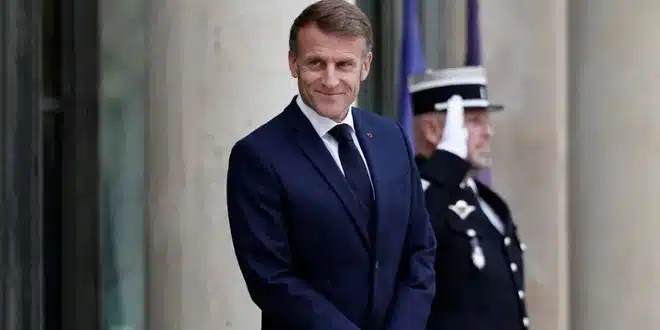French President Emmanuel Macron’s pledge to formally recognize a Palestinian state has been hailed as a landmark diplomatic move but is already drawing warnings of sharp retaliation from Israel. Analysts say the decision, while historic, may offer little immediate benefit for Palestinians unless backed by concrete measures.
A Surprise Announcement With Global Ripples
Macron stunned the international community with his summer pledge, reaffirmed this week during a speech at a New York conference held alongside the U.N. General Assembly. According to the Élysée, France will be joined by at least nine other countries—including the UK, Belgium, Australia, and Canada—in recognizing Palestinian statehood.
This step underscores mounting global frustration with Israel’s military campaign and blockade of Gaza, launched in response to Hamas’s October 7, 2023 attack. If carried out, France and the UK would become the first permanent members of the U.N. Security Council to take such a step, and along with Canada, the first G7 nations to do so.
“This recognition is not the end of our diplomatic efforts. It is not a symbolic recognition. It is part of a broader and very concrete action,” French foreign ministry spokesman Pascal Confavreux said, citing a French-Saudi roadmap to accompany the move. Macron himself defended the decision on Israeli television, calling it the “best way to isolate Hamas.”
Israeli Backlash and Diplomatic Risks
Israeli leaders are expected to retaliate, though not to the extent of severing diplomatic relations. Prime Minister Benjamin Netanyahu could close France’s consulate in Jerusalem—a hub for Palestinian engagement—or even annex parts of the West Bank, where settlement expansion continues despite global criticism.
“There is going to be a lot of noise,” one diplomat said, noting that France’s room to respond would likely remain limited. Agnes Levallois of the Institute for Research and Study of the Mediterranean and Middle East added: “Ultimately, it is the Palestinians who have the most to lose in this crisis,” arguing that without sanctions on Israel, recognition alone will have little effect.
A French presidential official warned that annexation of the West Bank would be “the worst possible violation of U.N. resolutions.”
U.S. Opposition and Calls for More Action
The United States has strongly opposed France’s initiative. Charles Kushner, the U.S. ambassador to Paris, criticized what he called France’s “unmet conditions” for recognition, while Israel’s ambassador to France, Joshua Zarka, told AFP that the move would “complicate the situation on the ground rather than advance peace.” Zarka insisted that no recognition should occur without the release of Israeli hostages held by Hamas.
By contrast, Palestinian envoy Hala Abou Hassira welcomed France’s decision but pressed for further action, urging sanctions, an arms embargo, and the suspension of Israel’s association agreement with the European Union.
Macron’s Calculations
Those close to Macron say the turning point came in April during a visit to El-Arish on Egypt’s border with Gaza, where he met wounded Palestinians and witnessed the blockade’s human toll. Domestically, the decision also allows Macron, embattled by political challenges and the recent appointment of his seventh prime minister, to shape a lasting foreign policy legacy.
With efforts to broker peace in Ukraine faltering, Macron appears to see Palestinian recognition as a way to exert pressure on Netanyahu and demonstrate France’s independence on the global stage. “He sees this recognition as a diplomatic lever,” one source close to the president explained.
Former ambassador Michel Duclos argued the move could rank alongside France’s 2003 stance under Jacques Chirac opposing the U.S. invasion of Iraq. “This could become a success for France,” he said.
What This Means
France’s recognition of Palestine represents a historic milestone in international diplomacy, but its long-term impact depends on what follows. Without coordinated sanctions or stronger pressure on Israel, analysts caution that the step risks being largely symbolic. For Macron, however, it signals a bold bid to carve out a legacy—and to reposition France as a central voice in Middle Eastern diplomacy.


